If you’re the sort of person who pays attention to liner notes, you’ve probably seen the name Albert Lee pop up so many places that you think that it can’t possibly all be the same guy. Could the guitarist who recorded and toured with Eric Clapton really be the same one who played with Emmylou Harris’ Hot Band, and who played with the Everly Brothers for their Albert Hall reunion show (and stayed on for 26 more years), and who also shows up on recordings by Joe Cocker, Jackson Browne, Bill Wyman, Chris Farlowe, and Deep Purple’s Jon Lord?
Well, it is the same Albert Lee who did all these things, and more. And somehow he has also found time to lead his own smokin’ hot bands over the years.
This interview was for a preview article for noozhawk.com for Lee’s 8/19/17 concert at the Lobero Theatre in Santa Barbara. It was done by phone on 7/31/17.
Jeff Moehlis: What can people look forward to at the upcoming show?
Albert Lee: People are always very surprised at my song selection, because I like good tunes and good melodies, but I also kind of shred on the guitar as well. And I play the piano, too – I do ballads on the piano. So I think people are pleasantly surprised, because there are certain aspects of what I do that they weren’t aware of. I’ve played in Santa Barbara before, maybe once with this band. We’re really looking forward to coming back.
JM: What kind of band will you have?
AL: We’re a quartet for this – guitar, bass, drums, and keyboards, and I play extra keyboards.
JM: I think it’s safe to say that “Country Boy” is your signature tune.
AL: Yeah, people always expect it.
JM: How did that song come together?
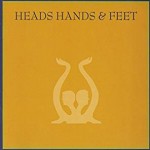
AL: Well, I was with the band Head Hands & Feet in the late-60’s / early-70’s, and we were preparing our first album. It was obvious that we needed some vehicle for me to play guitar on, and the three of us – me and Tony Colton and Ray Smith, the main writers of the band – all three of us came up with it. And it was an ideal vehicle for me to do country shredding, I guess you’d call it [laughs].
JM: I hope it never gets old for you to play it. I never gets old to hear it.
AL: No, I do enjoy it. It varies from night to night. The form is the same, but passing solos back and forth between myself and the keyboard player – it depends on how excited we feel that night.
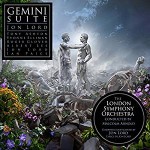
JM: That song has you playing in the style that you’re best known for, but when I look at your musical resume I find it intriguing to see the various diverse guitar gigs you’ve had over the years. One that jumps out at me is Jon Lord’s Gemini Suite. What’s the story behind that? How did you get involved with that one?
AL: I’d been friends with the guys in the band – Ritchie Blackmore for one – and I’d done some sessions with Ian Paice, the drummer. I think Head Hands & Feet did a small number of gigs opening up for Deep Purple. Jon had the idea of doing an orchestral version of his piece – I don’t know if they’d done it onstage beforehand – but for one reason or another Ritchie decided that he didn’t want to be in a part of the album. So that’s when Jon approached me.
I’m quite proud of it, really. For the cadenza in the middle, he said, “Just play whatever you want [laughs] and then at the end of it come in with these couple of phrases” in a certain key, and then the orchestra came in with me. So it was pretty much free rein. We did it late at night, actually, after a show. I think I played at The Marquee Club in London, and then I went and met him at the studio about midnight or so, and we did it piece by piece. There were certain lines that he wanted me to play with the orchestra, and he would play them to me, because I don’t read [music]. He would play them to me and I learned them that way. It wasn’t really hard work, but I was quite pleased with the way it turned out.
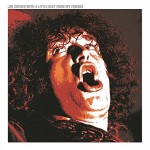
JM: It also jumped out to me that you played on the debut albums by Joe Cocker and Jackson Browne, and of course they both went on to huge careers. Did you have a sense at that point that they were destined for big futures?
AL: Oh, very much so. I think the first thing I did was Joe Cocker. I was working with Chris Farlowe, who I always thought was the premier R&B singer in the U.K., and he’s still got a great voice. I worked with him for about four years in the ’60’s, and I think it was about ’67 or ’68 that I got called for the session. It was Denny Cordell who was producing it. Jimmy Page was on a couple of tracks as well. I remember leaving there thinking, “This guy’s great! He’s got a really soulful voice.” I remember going back to Chris Farlowe, and I said, “I just played with this guy from Sheffield. He’s really good” [laughs]. And of course he went on to bigger and better things.
I was approached at one point when he had The Grease Band, and I think I was busy doing something else at the time. Someone had called me from the record company and said, “Look, do you want to do some gigs with Joe Cocker and The Grease Band?” I declined for one reason or another [laughs]. Perhaps I would’ve been at Woodstock if I had [laughs]. Most people think I was – they confuse me with Alvin [Lee] of course.
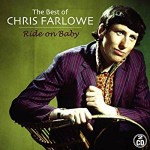
JM: Speaking of Chris Farlowe, he is someone who isn’t so well known in The States, but seems to have been huge in the U.K. I know you were doing a different style of playing with him, but what are your reflections on that time working with him?
AL: Oh, I loved the music. Prior to that, I was playing rock ‘n’ roll, really. I was in Germany playing at the Top Ten Club in Hamburg and the Star-Club. It was basically R&B and rock ‘n’ roll that we were playing. With Chris we leaned more to R&B, but I felt really at home playing that kind of music.
But throughout that period I had an interest in country music, and I started buying a lot of country records. I was a big fan of George Jones and Buck Owens. So there was a point where I decided I wanted to move on from Chris. I think that was point where everybody was trying to sound like Clapton, and was really into the Chicago blues, which I wasn’t. I thought that I had – and still do have – a unique way of playing that kind of music, but you wouldn’t mistake me for a Chicago bluesman for sure. So I decided I wanted to try something a little different.
There were a number of country bands that were playing on a circuit around London, and I’d go and see one or two of them. One of them was particularly good, and I used to go and sit in with them. I think the guitar player was starting work for a big company, so he didn’t want to be on the road so much, so I thought, “Why don’t I give this a try for a little while?” So we put together I think it was a four-piece band playing country music in the pubs and various little festivals that came along. There were little tours that we did with visiting American singers where we’d back them. They were always very supportive – they’d say, “You guys are great! You should go to The States” and whatever.
I enjoyed it for a while, but I soon realized after about 18 months that I wasn’t going to make a living playing country music in England. So that was when I started to move around a bit. I was a bit more freelance. I was working with Steve Gibbons for a few weeks, recording with him, and I almost joined Sandy Denny when she was putting together a solo group, which eventually became Fotheringay. But I moved on from that before we started to record. I was a bit restless at that time.
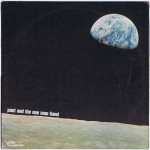
And that was when the two writers from Head Hands & Feet – Tony Colton, Ray Smith – they approached me. We started out doing an album where I was just a session player on it. The album was called Poet and the One-Man Band, and it was released in The States and the U.K. but it didn’t do much. We did a handful of gigs, and I think that was when I went with Steve Gibbons. And then I was approached again by Tony Colton, and he said, “Well look, we really want to give this band a try here.” We got a couple of different band members, and we rehearsed and wrote a bunch of songs and did some showcases. We had Capitol Records and Ahmet Ertegun from Atlantic fighting over us. So we ended up signing with Capitol, and we did two albums with Capitol.
That’s the band that brought me over to The States for the very first time. Throughout the ’60’s I’d longed to be in California, because I’d met up with some players – a guy named Don Peake who was playing with The Everly Brothers in 1962/63. He really gave me a lot of encouragement. He said, “You play great – you should go to L.A.” I said, “Sure, but there’s so many great guitar players there.” He said, “Oh, yeah, don’t worry about that. You’d do fine.” So throughout that period in the ’60’s, plus the British Invasion when there were so many English bands coming over here and doing well, I thought, “They’re making a go of it. Surely I could do really well if I got over there.” And I was also very jealous about all these guys bringing back armfuls of great guitars from the U.S. [laughs]. So eventually I made it out here, in ’70 I think it was, or ’71, and we played The Troubadour and we went down really well.
Then we did some touring where we were opening up for bands like Jethro Tull and Procol Harum and Edgar Winter and Black Oak Arkansas. You know, we played with them all [laughs], but mainly as an opening act. We had record company support for the tours. We just loved it. And eventually we went over to Atlantic and signed with Ahmet, and did an album for him. And for one reason or another the bass player and I decided that we didn’t like the way the band was going, and we were scared that if we did become successful that we’d be trapped, and we wouldn’t see any money or whatever. Maybe it was unfounded, but we both just decided to leave around the same time. This was late ’72. Through our record deal with Warner/Atlantic, I was still retained as a solo artist, so they were going to have me do a solo album. But I got waylaid along the way. I ended up joining Buddy Holly’s old band The Crickets.
JM: You can’t pass that up, right?
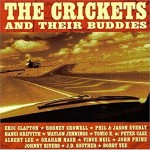
AL: No. I’m a huge rock ‘n’ roll fan, and I was obviously a big Buddy Holly fan. So I did a couple of years with them, working clubs around England with them for about six weeks, and then recording a couple of albums with them in The States, one in Nashville and one in Los Angeles. Through hanging out with them in L.A. I got to meet a lot more local musicians. It was just a great thrill to be accepted by these guys. I played a lot of bars around town, and played with a lot of my heroes. Johnny Rivers kind of took me under his wing for a little while. He always played with guys from The Wrecking Crew, so all of a sudden there I am playing with Larry Knechtel and Joe Osborn and Jim Gordon. I thought, “Wow, here I am playing with the A-team.” I was so glad to be here.
And then I did start working with Don Everly, because he’d just split up with his brother. I’d met him briefly in the ’60’s, and I knew Phil a lot better, but I started working with Don. That was a lot of fun, because I was thrown in at the deep end on a couple of situations. We were both in England involved in this country festival. I hadn’t gone over there to play with him, but he was there and said, “Will you play with me tonight on the show?” I said, “Of course I will.” Now this was being videoed for BBC TV. So we had a quick run-through with an English rhythm section, and I think we got about four bars into the first song when he said, “Will you sing with me?” I said, “What?” He said, “I want you to sing with me.” So there I was – I was an Everly Brother on BBC TV [laughs]. That was kind of fun. And I did a few other things with him after that.
Then the manager from Head Hands & Feet ended up managing Joe Cocker, and all of a sudden his band had a big fight and they needed a guitar player and a drummer. So the drummer from Head Hands & Feet and I got recruited into Joe Cocker’s band. This was ’74, ’75 I guess. So that was good fun playing with Joe and being at the top of the bill at some big arenas. That kind of folded. He went back to England, and that was when I fell into Emmylou’s Hot Band. I’d known a lot of the guys in her band, and of course I was a huge fan of James Burton. I went along to one of their gigs, and they said, “Oh, Albert, we were just thinking about you. Would you like to play with us for a week or so while James goes off to play with Elvis?” I said, “Great, love to.” So anyway, to make a long story short, James decided to stay with Elvis, which was good in the short-term but not in the long-term as we all know, because poor Elvis passed away the following year.
But that was a turning point for me because I realized that I was playing with a great band that was really going somewhere. She’d just released her second album, and I realized from that moment on that I was living in Los Angeles. And I really haven’t looked back since. I don’t regret a moment of it. It’s just been great. I often wonder if I’d stayed in England what I would’ve done, if I wouldn’t been as successful and accepted as I am now. I have no idea. I didn’t like what was happening in England at the time with bands like Yes and Pink Floyd. It just wasn’t my kind of music, and that’s what most people wanted at that time in the U.K. I was more into the roots music that was happening here.
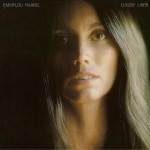
JM: I want to ask you about Emmylou. For example, the recording of the song “Luxury Liner” with her is really smokin’. What was it like working with her at that time?
AL: Oh, it was just wonderful. It was a great band, and I think that was one of the very first tracks that we did. They realized that this was going to be a hot track for this album that we were doing. It was great the way it turned out.
JM: Of course “Luxury Liner” was a Gram Parsons song. Did you ever get to meet Gram Parsons?
AL: Yeah, I did. One night I was with The Crickets over at Jerry Allison’s house, and the next day we were about to drive to Nashville. Ric Grech was in The Crickets at that time, too, and of course neither of us knew how far it was to Nashville. You know, we thought, “How long’s it going to take, a day and a half or something?” We had a rude surprise. Anyway, the night before we left, Gram showed up with Phil Kaufman the Road Mangler, his sidekick, and we sat and listened to some of the tracks off his final album. We almost had him convinced to jump in the Winnebago with us and come to Nashville and hang out. But sadly he passed away while we were in Nashville, just that week or so that we were there. Obviously I knew who he was, and he’d heard of me, and we thought it might be a good idea to play together, but sadly it wasn’t to be.
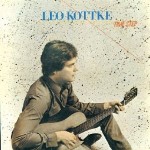
JM: Here’s a funny Emmylou story that you might like, from Leo Kottke’s Time Step album.
AL: I’m on one of those tracks.
JM: Yeah, one or two of those tracks. I interviewed Leo a few years ago, and he said that he was very excited after recording one of the songs, and he asked Emmylou, “How do you make it sound so good?” And she said, “Well, when you go flat, I go with you, just not as far.” [both laugh] That kind of deflated him a little bit.
AL: Actually, I love Leo’s singing. He’s got a very distinctive voice, kind of baritone. I love the tone of his voice.
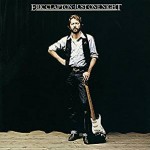
JM: Another a big gig for you was joining up with Eric Clapton, which included the Just One Night album. What are your memories of the concert which became that album?
AL: Oh, that was at that Budokan in Tokyo. We hadn’t been together that long at that time. I joined him early on in ’79, and then we did a big tour of The States. He was working with his band – he called them the Tulsa Tops. They were all the guys from Tulsa that had been with him for ten years, like Carl Radle and Dick Sims and Jamie Oldaker. And at the end of that first big American tour he fired the whole band except me, and I thought, “What the hell is going on here?” Anyway, he decided that he like having an English guy around, and he put together an English band that lasted another two or three years, and then he fired all of those guys. Now, I managed to survive that purge, but I realized at that point that this isn’t the kind of gig that I can really depend on, the way he was changing musicians. He finally let me go in ’84 or ’85.
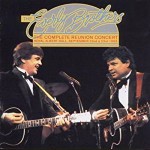
But prior to that, the Everly Brothers had started to talk to each other again, and I always hoped that I’d get a chance to play with them if they invited me. And lo and behold, they both agreed that I should be the guitar player, as I’d known them quite well for a number of years. I did the Albert Hall with them, which was a great success, and I thought, “At least I got to play with them once.” Then I got call saying, “The guys have gotten a record deal” – they were going to do a record – “and we’re going to work in the summer, do a tour of the U.S.” And I thought, “That sounds cool”, and in actual fact it worked out great because I was just about to get fired from Eric, so I went from Eric to the Everly Brothers, not knowing how long that would last. And in fact it lasted for another 26 years. So I knew those guys quite well.
JM: I always loved their sound. Hopefully they were getting along better then.
AL: Oh yeah, they were most of the time. They’d hang out together. We’d party after the gig, and they were the best times actually, when they were both drinking after a gig – we’d all be drinking – and they’d be telling stories about their early days. I thought, “You need to do a book. This needs to go down so people don’t forget this stuff.” They had some great stories. But it wasn’t to be. They were pretty reluctant about doing interviews, which is so sad, really. But it went on for 26 years.
In the meantime I was invited to play in a friend’s band in the U.K., so that was a turning point for me. That was ’87 I think. So I began fronting my own band, something I should’ve done 20 years before. And it proved to be really successful. That was Albert Lee and Hogan’s Heroes. I did a good 25, 26 years with those guys. And in the middle of that – I mean, I was really busy there for a while – I started working with Bill Wyman and the Rhythm Kings. I probably did about 14 years with him. So between the Everly’s and my band and Bill Wyman, I was pretty busy. Then the Everly’s quit about 7 or 8 years ago now, I guess it was, and Bill Wyman’s pretty much quit now. When he turned 80 I think it just got too much for him being on the road. He still may do an odd gig here and there, but I think his days of touring are over now.
But I’m pretty busy. I’ve quit my English band, and after living in California for 40 years, I finally put a local band together, which is who you’ll see in a couple weeks. We’ve been doing this for about 4 years now. I’m not sure who the drummer might be on that gig, because our drummer quit, but he’s actually been coming back and doing odd gigs when he can. So we don’t have a regular California drummer at the moment, but we’re always lucky enough to find someone that we’ve worked with and will fill the spot at the gig.
JM: You’ve mentioned a bunch of artists you’ve played with over the years, and I know that there have been even more. Of these artists, are there any that particularly stick out to you?
AL: Definitely the Everly Brothers. It has to be, because they always sounded so good. And the band was good, too. We had a great band. We had Larrie Londin on drums for a number of years, and I stood next to Buddy Emmons, the world’s greatest steel player for about 8 years or more. I’d be up there with this band, and these two guys would be standing in front of us, and I thought, “Boy, this sounds pretty good. It doesn’t get any better than this.”
JM: They were there at the beginning of rock ‘n’ roll.
AL: They were at the forefront of country rock, really. Because they came from country, but they were listening to Bo Diddley and Little Richard. So they were influenced by a lot of rockers, and that’s how they were able to come up with a unique sound. They were smooth country harmonies, but they were singing all kinds of rock ‘n’ roll. Just wonderful stuff.
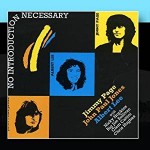
JM: It’s kind of strange, but I know that some people associate you with Jimmy Page, probably because of the album No Introduction Necessary.
AL: Well, let’s go back to 1961 when I was playing a little coffee bar called the 2i’s Coffee Bar. I was playing with a band around that time, but when we weren’t working the rhythm section of that band – guitar, bass, and drums – we’d play in this little cellar. I wasn’t singing then, so there were guys who would come down and sit in and sing. I was 17, and Jimmy Page used to come down and sit in as well – he’s a few months younger than me – and we got to be good friends, and we’d go to each others’ house and listen to records and so on. By that time I’d acquired a Les Paul Custom, a black Les Paul with three pick-ups and a Bigsby, and I had a nice Supro Amp, too. He liked my rig so much that he went and bought the same gear. He bought a Les Paul that sadly he had stolen a few years later. But I think his little Supro that he used is now in the Rock & Roll Hall of Fame in Cleveland. So I’ve known Jimmy for a number of years.
That album [No Introduction Necessary], it was one of the guys who was working with Chris Farlowe’s Thunderbirds, and he got a record deal. Jimmy was the guitar player on it, and Big Jim Sullivan and myself. We just did a bunch of rock ‘n’ roll covers. I don’t know if it was ever released… I think it was released under his name, under the name of Gerry Temple, the lead singer. But years later it started to appear with just my name and Jimmy’s name on the cover, because they thought this would sell more records. I still think that it was the singer who did it, he put it out. And it still comes out. It’s had about five or six different covers and names, but it’s the same tracks. And we were just session guys on it. We probably got about 20 pounds each, and someone’s making money out of these. I think it’s time to press up some copies of my own [laughs] and make some money from a record I played on. Everyone does it now, so whatever.
JM: Was there something in the water back then? You were friends with Jimmy Page, you knew Eric Clapton back then, probably Jeff Beck was around.
AL: Oh, yeah, the West End of London, just in a small number of clubs… For instance, with Farlowe I was playing at the Flamingo Club on Wardour Street in the West End of London, and any night you could down there and see Clapton with John Mayall or I’d be playing with Chris Farlowe, or there’d be Georgie Fame’s band with Colin Green playing guitar – he was a really fine guitar player, and still is. John McLaughlin was playing with Ronnie Jones and the Nightimers. Zoot Money’s Big Roll Band had Andy Summers on guitar. So we all knew each other.
JM: Was there kind of a friendly competition?
AL: Yeah, I guess so. I mean, everyone was making great music, you know, so it was a mutual admiration thing really. It was great fun.
I’ll tell you a quick story. My wife is a big fan of Boz Scaggs, and we went to see him play locally at the Canyon Club in Agoura [Hills]. I didn’t know him, but I went back to say hello, and my wife wanted to meet him. He recognized me immediately. He said, “I came to see you in London in the mid-60’s. I went over there to look at the blues scene over there, and I went to the Flamingo and I saw you playing with Chris Farlowe, and Clapton playing with Mayall.” He said, “It was a lot of competition.” So that was pretty funny.
JM: Do you have anything in the works right now?
AL: You know, I’m 73, but as you probably guess there are no pensions in this business, no decent pensions for musicians, you know? Unless you’ve been a session guy for 30 years. They’re the guys who get big checks every month. So I’m still fit – I like to think I’m still fit – and I love to play. If the touring is well-planned I like to tour as well. So I have this American band as you know, and I have a U.K. band now that I’ve just put together. These guys are younger guys, and there’s a lot more enthusiasm, so I’m going to be working with them in Europe for two or three months of the year, and then working in the U.S. and other countries like Japan and maybe Australia with the U.S. band. So it just keeps ticking over. I’ll keep doing it until I can’t do it anymore.
JM: Are you still playing Telecasters?
AL: I don’t play the Tele onstage anymore. I’ve been involved with Music Man since the ’80’s, when Ernie Ball bought Music Man. We helped design the guitars from scratch, and they designed one that I particularly liked, and I ended up adopting it and it’s been my Signature Guitar now for 20 years or more. I love it. I still love the Tele, but I love the Music Mans. They’re so well made, and they sound and feel great.

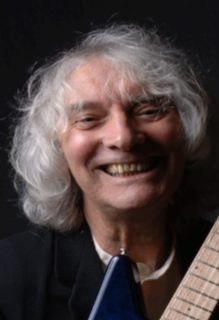
Discussion
No comments for “Interview: Albert Lee”